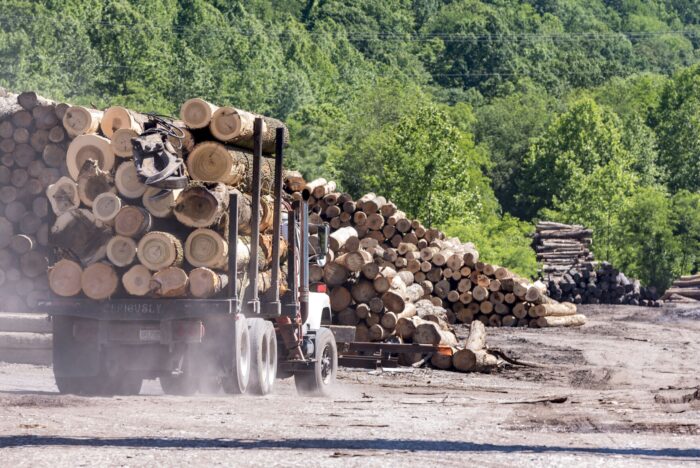Your browser doesn't support audio playback.
Hundreds of U.S. hardwood companies and organizations are warning that tariffs on lumber are devastating a legacy industry.
President Donald Trump enacted a 10% global tariff on imports of softwood lumber, as well as a 25% global tariff on kitchen cabinets and vanities, which will increase to 50% on January 1.
In a letter to the Trump administration, the Hardwood Association and affiliates urged relief from these import tariffs in the hopes of avoiding retaliatory tariffs from other countries.
“Barring successful deals that include hardwood interests, we seek federal support to sustain our operations until negotiations succeed,” the letter states.
The letter was coordinated by the Hardwood Association, an umbrella organization representing the majority of trade associations engaged in the manufacturing and distribution of North American hardwood lumber and related products.
The issue stretches back to the first Trump administration and a previous round of tariffs that triggered retaliatory action from China in particular.
“Prior to 2018, hardwood lumber was the second most exported U.S. product to China, behind only soybeans,” the letter states. “When China imposed retaliatory tariffs that year, American hardwood exporters lost half their market share to competitors in Russia, Thailand, Malaysia and elsewhere. Even once those tariffs receded, regaining those markets has proven extraordinarily difficult.”
The signatories of the letter include 30 West Virginia hardwood businesses and community organizations like the West Virginia Forestry Association and West Virginia University.
Jeff Zangari, general manager of Meadow River Hardwood Lumber Company in Rainelle, in Greenbrier County, said foreign markets represent more than 70% of the industry’s business. He said local businesses have already lost ground internationally, and hopes of regaining those markets are slipping away.
“Our customers are in panic mode because they don’t want to buy lumber now because they don’t want to manufacture their kitchen and kitchen cabinetry out of American hardwoods, because if they export it, they’re going to have to pay whatever the the percentage of tariffs are now,” Zangari said. “It erodes our market share, so our customers will use other hardwoods, whether they be from Southeast Asia or Africa or even European hardwoods. So we just continue to lose market share.”
Zangari is concerned that if tariffs don’t let up, his business and the industry as a whole could go away, dealing a serious blow to local economies in West Virginia.
“If we go under, then that’s 45 jobs gone in western Greenbrier County, West Virginia,” Zangari said. “So there’s a huge impact in small rural towns like ours.”
West Virginia is the third most forested state in the country. It is estimated the forestry industry generates more than $3 billion annually for the state and directly employs more than 30,000 people with thousands more employed indirectly in trucking and manufacturing.
Dana Cole, executive director of the Hardwood Federation, estimates that small and midsized businesses like Zangari’s account for as much as 85% of her organization’s membership. She said international retaliation to the latest American tariffs have not been imposed yet, but after the last round results could be dire.
“We’re kind of in a truce, but things are heating up,” she said. “China has started to kind of back down on purchases, and over the last six months or so, they’re down about 10% so, you know, it is having an impact. And we are just very concerned that if the industry takes another hit, it’s not going to survive in any significant way.”
The Hardwood Association claims that since 2018, lost commercial opportunities for their industry total more than $9 billion, and 40,000 jobs have been lost nationally in the last two years alone.
Cole said the Trump administration has helped the hardwood industry by speaking positively of its role in forest management. In March, Trump signed an executive order to expand American timber production.
“So those are good things, but you also have to have the milling and the production capacity and the markets to support that capacity, if you want to do all of those things,” Cole said. “So on the one hand, it’s like, yes, the administration is going down a good path. On the other hand, they’re doing some things that make it very, very difficult to go down that path.”
